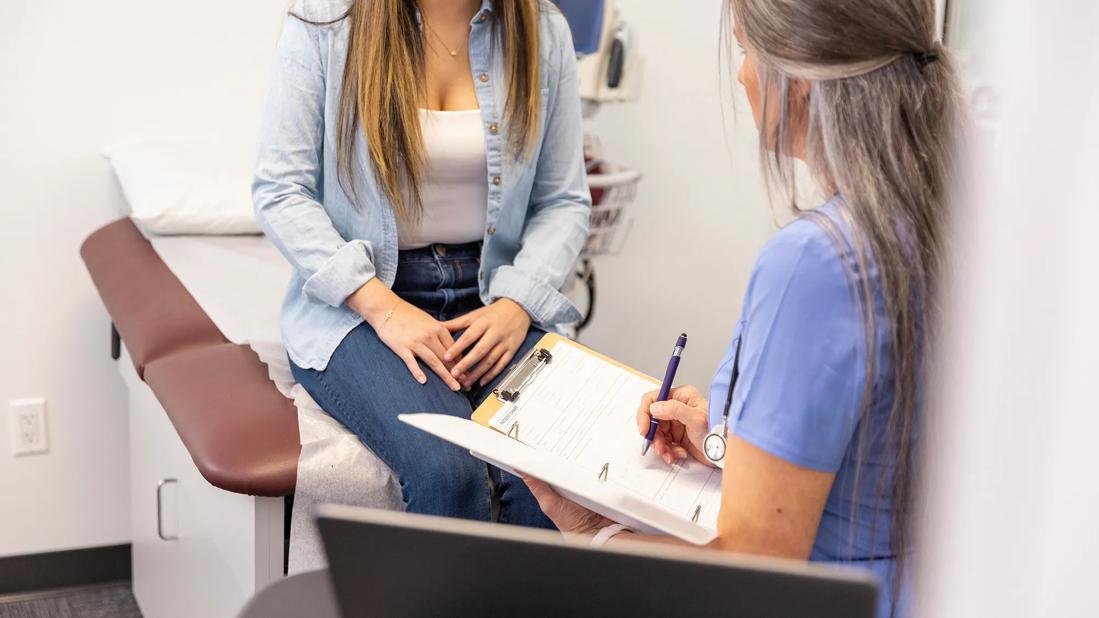What To Know About Getting a Breast Cancer Second Opinion
A second opinion can confirm your diagnosis and treatment plan and help you feel more confident about what’s next

When you receive a breast cancer diagnosis, it’s natural to have a lot of questions — including, “Should I get a second opinion?” The answer, says oncologist Megan Kruse, MD, is often a resounding “Yes.” Here’s why.
Why should you get a second opinion?
When you have breast cancer, getting a second opinion can:
- Confirm your diagnosis. The second-opinion doctor will weigh in on your diagnosis. They’ll also confirm that the diagnosis was made by an institution experienced in identifying different types of cancers and disease stages.
- Affirm or expand your treatment plan.“It’s very important to get the right treatment the first time,” Dr. Kruse says. “The second doctor will look over your treatment plan to ensure that it’s the latest therapy with the best chance of effectively treating the type of cancer you have.”
- Help you understand your diagnosis.Ask your second-opinion doctor any questions you have, including anything that wasn’t clear or didn’t stick when you spoke with your first doctor. “The only bad question is an unasked question,” Dr. Kruse emphasizes.
- Suggest clinical trials. Your second-opinion doctor may know of clinical trials, medical studies that explore potential treatments that haven’t yet been presented to you.
- Bring you peace of mind.“Having a second doctor to confirm your diagnosis and reaffirm your treatment plan can help you feel reassured about the path forward,” Dr. Kruse says.
When to do it
It’s best to seek a second opinion as soon as possible after your diagnosis — ideally, before you start any type of treatment. And while you don’t need any special reason or excuse to get a second opinion, it may be especially insightful if you:
- Have a rare type of cancer
- Have recurrent breast cancer
- Are considering some type of high-risk treatment
- Aren’t responding to your current treatment
Sometimes, it can take a bit of time to set up a second-opinion appointment. If you’re worried that this could delay the start of your treatment, talk to your healthcare provider to see what they recommend.
How to get a second opinion
“You’ll want to get the names of several doctors and hospitals that have the most experience in treating breast cancer and are familiar with the latest updates on treatments,” Dr. Kruse advises.
- Ask your doctor for a referral to a breast cancer specialist, or call local hospitals or medical centers that treat cancer.
- Seek out providers that friends or family members have had good experiences with.
- Seek a virtual second opinion, which allows you to speak with world-class experts who may not be located in your area.
- The National Cancer Institute has named some centers as providing state-of-the-art, up-to-date cancer treatment. To learn more, contact the Cancer Information Service at 1.800.422.6237.
Be sure to bring all of your medical records, imaging and pathology slides from the other hospital to your second-opinion appointment (or have them ready if you’re attending a virtual appointment).
Questions to ask during second opinion
Before your appointment, write down a list of questions to ask about your breast cancer diagnosis, like:
- Do you agree with my diagnosis? Do you suspect an alternate diagnosis?
- Do you agree with my current treatment plan? What treatment options do you recommend?
- What are the benefits, risks and side effects of each treatment option?
- What is the chance of success of each treatment option?
- Do you recommend any additional testing?
- Do you recommend any relevant clinical trials?
After your second-opinion appointment, speak with your original doctor to discuss what you’ve learned and how, if anything, it might change your treatment plan. If the two doctors’ views are very different, they may have to speak with one another to try to come to an agreement.
Oh, and one more thing: Seeking a second opinion doesn’t necessarily mean you have to switch doctors. You may decide you do want to do that — like if your current provider doesn’t specialize in the treatment you need — but it’s not usually the goal.
“Getting a second opinion can be an opportunity to meet with another doctor who can provide a second set of eyes about your diagnosis and treatment plan,” Dr. Kruse reiterates. “This does not mean you have to switch providers. Most of the time, second opinions reassure patients that they’re on the right track and should have confidence in their local doctor or team.”
Final thoughts on second opinions
Though you may feel uncomfortable asking your initial doctor for a second opinion, try not to be daunted.
“Your doctor shouldn’t take offense to you asking about a second opinion,” Dr. Kruse says. “It’s very common and even encouraged. As doctors, we often feel reassured by the input of colleagues — but if you really don’t want your second-opinion doctor to share their thoughts with your initial physician, that’s OK, too. The opinion can be for you only.”
Ultimately, getting a second opinion can help you feel more confident about your care options and decisions — so you feel as prepared as possible to face your breast cancer diagnosis.